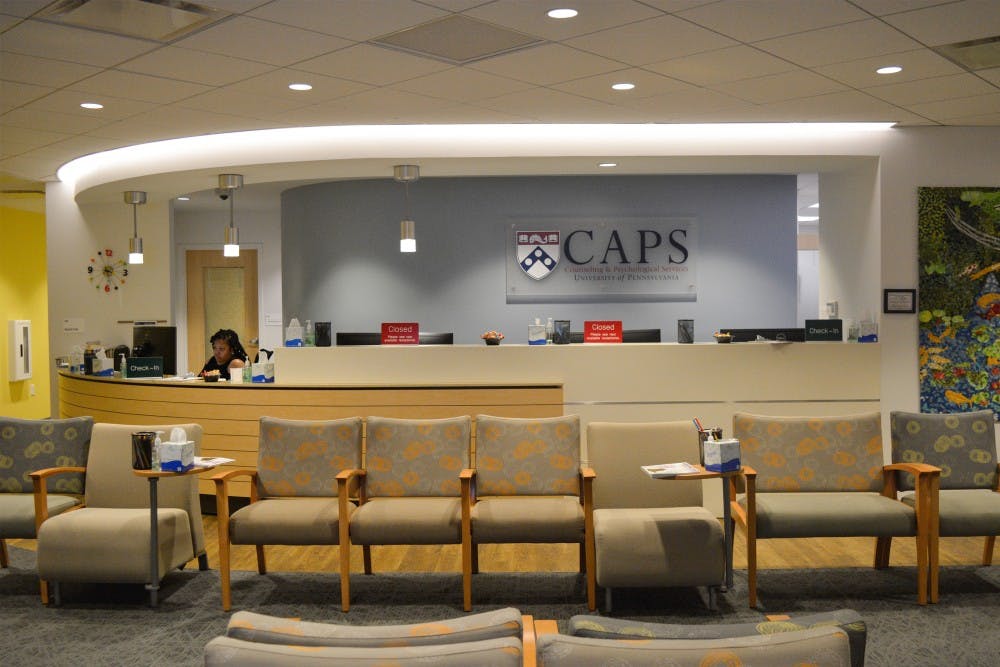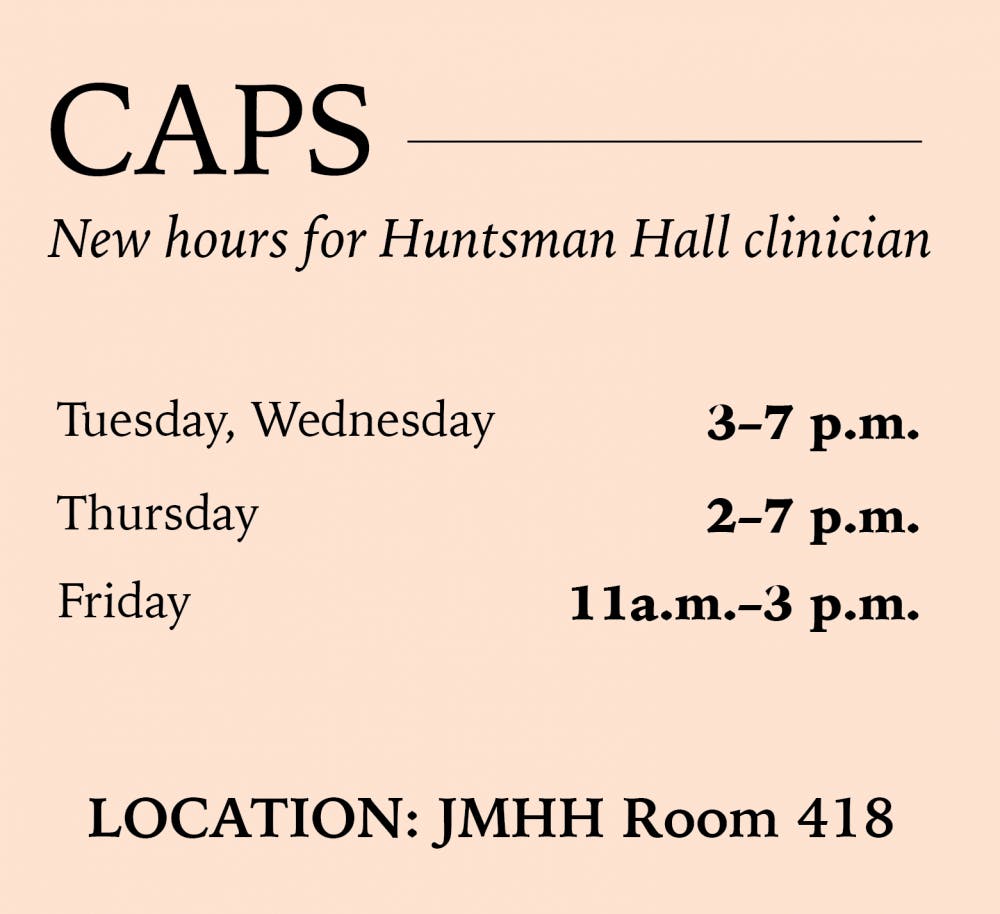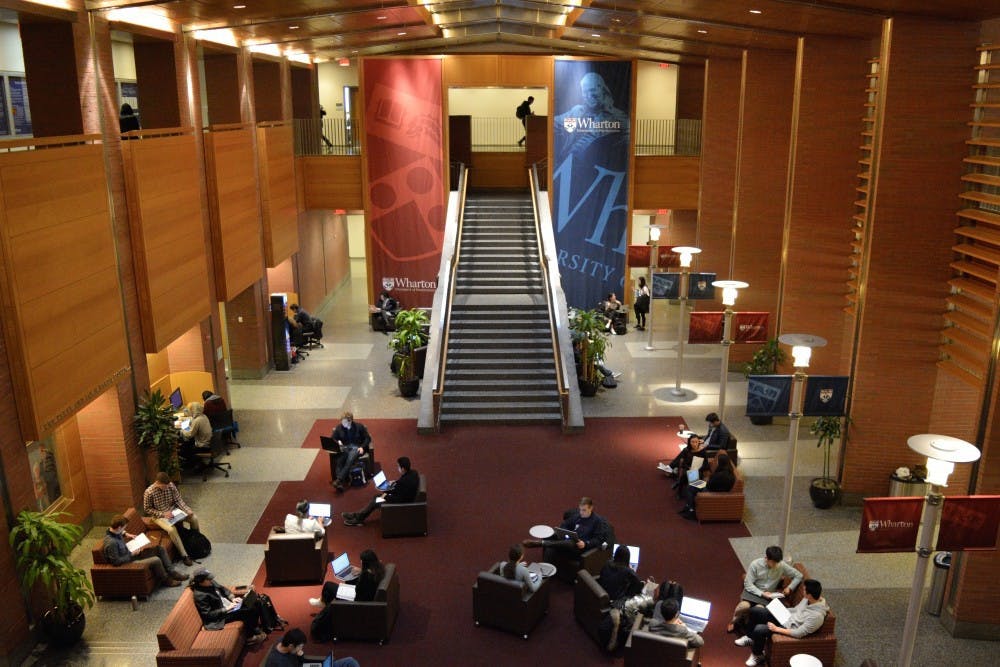
Members of the UA want to establish on-site clinicians for students in all four undergraduate schools.
Credit: Cindy ChenPenn Undergraduate Assembly members want to bring on-site Counseling and Psychological Services clinicians to all four undergraduate schools — a point of access that has so far only been given to Wharton students.
In November 2018, Wharton students received access to their own on-site clinician, licensed social worker and psychotherapist Courtney Hutchison, who is stationed in Huntsman Hall. This semester, CAPS decided to extend Hutchison's on-site hours to meet growing student demand.
But while Wharton students are able to reach an on-site clinician, the remaining 84 percent of Penn undergraduate students do not have access to a similar service. UA College representative and College sophomore Chase Serota and UA associate and College freshman Mary Sadallah are now working to bring in on-site clinicians for all Penn undergraduates.
“Right now, it sends the message that the mental health of Wharton students [is] more important than the mental health of the greater undergraduate population,” Serota said.
Sadallah said they are reaching out to the Provost's office and lobbying the three undergraduate schools that do not have this model – the College of Arts and Sciences, the School of Nursing, and the School of Engineering and Applied Science.
[Huntsman Hall CAPS clinician extends hours to meet Wharton students' needs]
“It’s definitely something that strikes interest with a lot of students in the College and other schools who feel like [Penn] administrators don’t place as many resources into their well being,” Serota said.
Kumar said Wharton received an on-site clinician because Wharton administrators themselves approached the CAPS team with a proposal to implement the system. She also said Wharton pays Hutchison out of its own school funding.

She added that there are no concrete plans to expand the pilot program to the other three undergraduate schools. Kumar and Chief Wellness Officer Benoit Dubé emphasized that they hope to collect more data over the next academic year before expanding the program to other schools.
“We’re still in the hypothesis generating stage, and we’re going to figure out what the implications are,” Dubé said. “Everybody is excited and curious, but maybe it was the novelty of it all. We have to be diligent and take our time so we don’t completely rush to conclusions, but we are definitely paying attention.”
But Serota and Sadallah believe other schools should not have to wait another year to receive their own embedded model.
"Mental health is an urgent issue and we can’t afford to wait one or two years or three years to get data and do pilot programs and just trying as many things as possible," Serota added.
There have been varying degrees of action within the other three undergraduate schools to pilot their own embedded models.
College Dean Paul Sniegowski said in November 2018 that the Dean’s Advisory Board was discussing the possibility of incorporating a similar model in the College, however, the dean did not respond to multiple requests to comment on recent updates. Engineering Dean Vijay Kumar also did not respond to request for comment.

Wharton is currently the only undergraduate school with an on-site CAPS clinician, located in Huntsman Hall.
Christina Costanzo, Nursing assistant dean for Admissions and Academic Affairs, said she has not yet had a conversation with CAPS about the possibility of bringing the embedded model to Nursing buildings.
"I'd want to see what the needs of the nursing students are," Costanzo said. "For example, how often are they seeing CAPS. I would want to look at all of that information to see what would be best for the students – what feedback are we getting from students?"
The UA members said if funding the model is an issue for the other schools, Penn should pay for and provide the same service for all undergraduate students.
Since February 2017, individual CAPS staff have been assigned to four of the graduate schools – including the School of Veterinary Medicine, Penn Law, the Perelman School of Medicine, and the School of Dental Medicine.
“It’s our mental health that’s on the line, so why wait and see how well the model works [at the other schools]? Even if it doesn’t work as well as they hope, maybe it will affect a small number of students and that’s still something,” Sadallah said.
The Daily Pennsylvanian is an independent, student-run newspaper. Please consider making a donation to support the coverage that shapes the University. Your generosity ensures a future of strong journalism at Penn.
Donate







